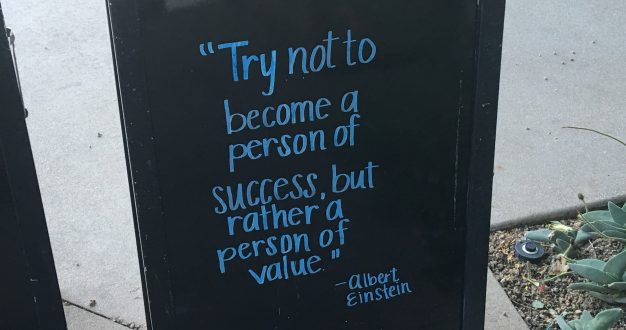 When was the last time you experienced creative flow? That mindstate where you feel entirely focused, even immersed, in the task at hand.
When was the last time you experienced creative flow? That mindstate where you feel entirely focused, even immersed, in the task at hand.
You might say – Well, I don’t work in a creative field. Yet even the most logical jobs require some sort of creative problem solving, right? So, when was it? Yesterday? Last week? Last month?
If you are like most people, it may be hard to remember when you last experienced creative flow. Here’s why.
In recent years, we have become much more distracted – just think about how many times you’ve checked your phone in the last hour. Fueled by the technology we use, and accelerated by social media, we have systematically become more likely to engage in short, easy information bursts, rather than to deeply ponder any one topic at length.
Johann Hari, New York Times Best-selling author says:
[…] the phones we have, and the programs that run on them, were deliberately designed by the smartest people in the world to maximally grab and maximally hold our attention.
Stolen Focus: Why You Can’t Pay Attention – and How to Think Deeply Again
Hari says that the more you flood the system with information, the less time people can focus on any individual piece of it. Our phones are with us all the time, they easily grab our attention. But they are not always the important thing.
In fact, often what makes us happy is doing the thing that is a bit difficult.
Fragmentation vs Flow
Hari’s book Stolen Focus: Why You Can’t Pay Attention – and How to Think Deeply Again is well-researched and definitely worth a read. In fact, the implications it makes of our distracted society are troubling, to say the least.
But rather than spend more time talking about the problem, let’s understand what leading thinkers on the topic say about getting back into flow. Because, as Hari explains, we have a choice between fragmentation and flow.
Fragmentation makes us smaller, shallower, and angrier. Flow makes us bigger, deeper, and calmer. So, how do we get back into flow?
First, slow down.
Focus on one thing at a time and limit distractions.
For example, Hari literally places his phone in a time activated safe to allow for uninterrupted focus every day. He refers to research by Gloria Mark from the University of California. Mark found that for every disruption, it takes 23 minutes and 15-seconds to get completely back on task. She also concluded that the average American worker experiences an interruption every 3-minutes!
Hari’s work explains that multitasking is a myth. Multitasking was originally a computer term. When human’s “multitask” they are simply switching between activities. And the effects are less than ideal. Students who received intermittent texts during an exam performed 20% worse than students who did not. Multitasking can literally change the structure of our brain. MRI scans show that multitaskers have less brain density in the regions responsible for empathy and emotional control. And, this is just the tip of the iceberg in terms of research!
So, here are a few other concrete things Hari advocates on the journey to greater flow:
- Respond compassionately to yourself when you do get distracted. Simply limiting distractions can leave a void. So, rather, get in the habit of asking yourself – what can I do right now to get into flow, and deeply focus? What can I do that is meaningful to me and also somewhat challenging?
- Disable notifications, take extended breaks from social media, and allow for “mind-wandering” time. When we do slow activities (like yoga) studies show that we improve our ability to pay attention. Slowness nurtures attention, speed shatters it. So disconnect, take a walk, and allow your mind to draw connections between different things you are learning or working on.
- Get 8 hours of sleep every night and find time to play. Whether you are a parent or not, these two guidelines provide a great foundation for focus and attention.
So you might ask – WHY is it so important to regain creative flow? Hari argues that our attention and focus is fundamental to a good life, a well-functioning democracy and solving difficult problems.
The late Stanford University professor Clifford Nass gave a summary of his own research when he said:
Once your brain has become accustomed to on-demand distraction, it’s hard to shake the addiction even when you want to concentrate. To put this more concretely: If every moment of potential boredom in your life—say, having to wait five minutes in line or sit alone in a restaurant until a friend arrives—is relieved with a quick glance at your smartphone, then your brain has likely been rewired to a point where, it’s not ready for deep work—even if you regularly schedule time to practice this concentration.
So, I hope this provides some meaningful inspiration toward a life that feels more aware and attentive. I’ll be shutting down my devices now for some uninterrupted flow time. See you on the other side!

